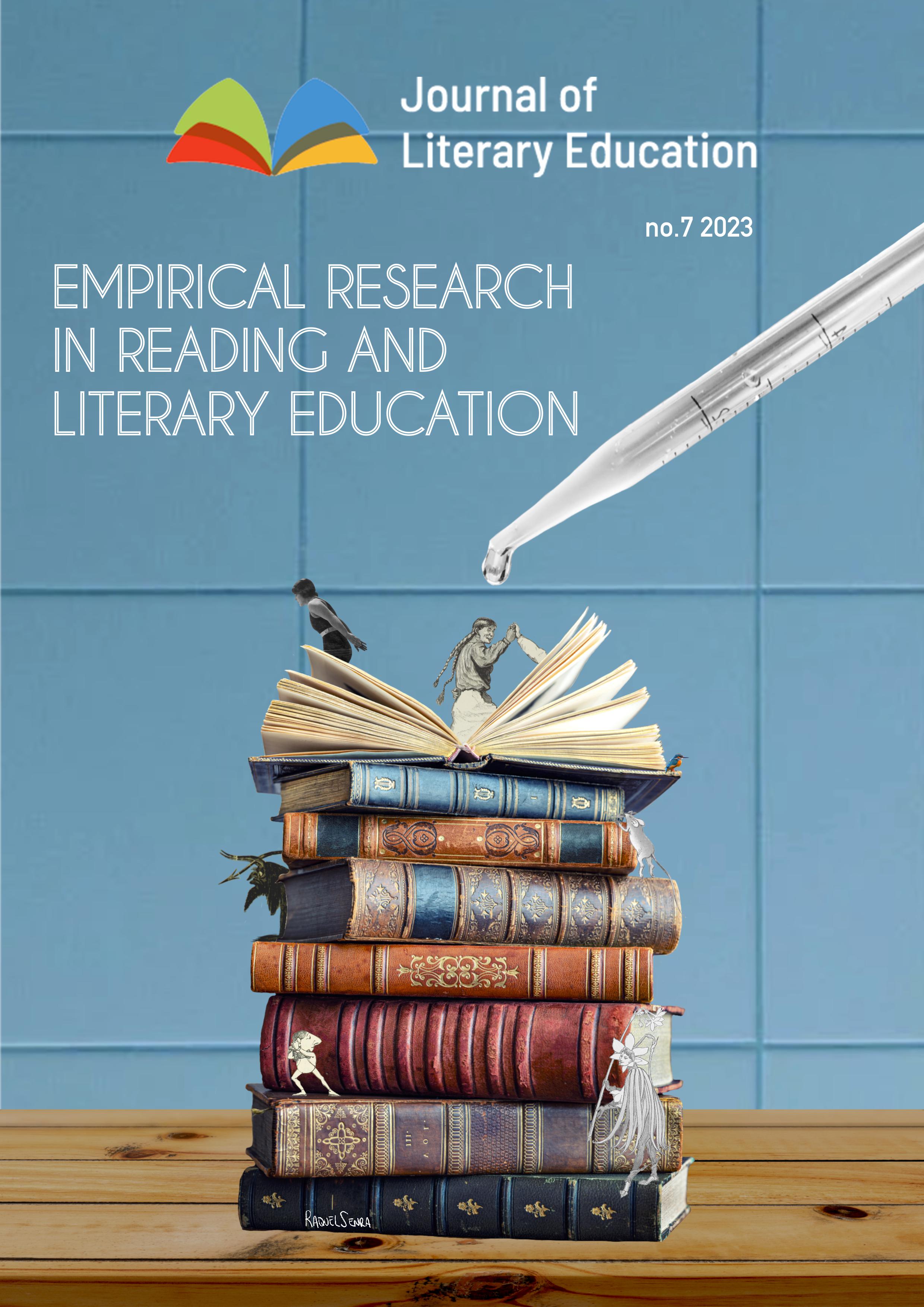Ideological Engagement in a Colonial Society: A Case Study of Premchand’s Children’s Literature
DOI:
https://doi.org/10.7203/JLE.7.26732 Abstract
Abstract
Abstract
This paper highlights the importance of locating ideological engagement in children’s literature within a particular historical and socio-cultural context. It focuses on the literary works for children written by the prominent fiction writer of colonial India, Dhanpat Rai (1880-1936), better known as “Premchand”. The paper offers a textual and historical analysis of his body of work by situating its subject-matter within the larger context of his views on nationalism and literature, evident in his private correspondence, writing and biography. Premchand was a strong proponent of socially and politically engaged literature. He believed that literature of an unfree country like India should educate and offer advice to its people. This greatly reflected in his children’s literature written mainly for male children. He sought to develop their character by teaching them certain values and virtues. The main purpose of his works was character development. This paper argues that the values and virtues that Premchand sought to inculcate in his child readers were laden with a strong patriotic fervour. He sought to advocate national consciousness amongst his readers by instilling in them values of patriotism, self-reliance, bravery, courage and justice. In turn, this would enable them to actively participate in the freedom struggle and hold them in good stead in an independent India of the future. The paper contextualises Premchand's children’s literature within the nationalist discourse on childhood prevalent in early-twentieth-century colonial India and explores the relevance of Sutherland’s conceptual framework in understanding ideological engagement in Premchand’s works.
Key words: children’s literature, ideology, nationalism, colonialism, Premchand
Resumen
Este artículo destaca la importancia de situar el compromiso ideológico en la literatura infantil dentro de un contexto histórico y sociocultural específico. Se centra en las obras literarias para niños escritas por el destacado escritor de ficción de la India colonial, Dhanpat Rai (1880-1936), más conocido como "Premchand". El artículo ofrece un análisis textual e histórico de su obra al situar su temática en el contexto más amplio de sus opiniones sobre el nacionalismo y la literatura, evidentes en su correspondencia privada, escritos y biografía. Premchand fue un fuerte defensor de la literatura comprometida social y políticamente. Creía que la literatura de un país no-libre como la India debería educar y ofrecer consejos a su pueblo. Esto se reflejó ampliamente en su literatura infantil, escrita principalmente para niños varones. Buscaba desarrollar su carácter enseñándoles ciertos valores y virtudes. El propósito principal de sus obras era el desarrollo del carácter. Este documento sostiene que los valores y virtudes que Premchand buscaba inculcar en sus lectores infantiles estaban impregnados de un fuerte fervor patriótico. Buscaba promover la conciencia nacional entre sus lectores inculcándoles valores como el patriotismo, la autosuficiencia, la valentía, el coraje y la justicia. A su vez, esto les permitiría participar activamente en la lucha por la libertad y los prepararía para un futuro India independiente. El artículo contextualiza la literatura infantil de Premchand dentro del discurso nacionalista sobre la infancia prevalente en la India colonial de principios del siglo XX y explora la relevancia del marco conceptual de Sutherland para entender el compromiso ideológico en las obras de Premchand.
Palabras claves: literatura infantil, ideología, nacionalismo, colonialismo, Premchand
Resum
Aquest article destaca la importància de situar el compromís ideològic en la literatura infantil dins d'un context històric i sociocultural particular. Se centra en les obres literàries per a infants escrites pel destacat escriptor de ficció de l'Índia colonial, Dhanpat Rai (1880-1936), més conegut com a "Premchand". L’article ofereix un anàlisi textual i històric de la seua obra en situar la seua temàtica dins del context més ampli de les seues opinions sobre el nacionalisme i la literatura, evidents en la seua correspondència privada, la seua escriptura i la seua biografia. Premchand va ser un fort defensor de la literatura compromesa social i políticament. Creia que la literatura d'un país no-lliure com l'Índia hauria d'educar i oferir consells al seu poble. Això es va reflectir àmpliament en la seua literatura infantil, escrita principalment per a nens mascles. Buscava desenvolupar el seu caràcter ensenyant-los certs valors i virtuts. El propòsit principal de les seues obres era el desenvolupament del caràcter. Aquest document argumenta que els valors i virtuts que Premchand buscava inculcar als seus lectors infantils estaven carregats d'un fort fervor patriòtic. Buscava promoure la consciència nacional entre els seus lectors inculcant-los valors com el patriotisme, l'autosuficiència, la valentia, el coratge i la justícia. Això, a la vegada, els permetria participar activament en la lluita per la llibertat i els mantindria en bon estat en una Índia independent del futur. El document contextualitza la literatura infantil de Premchand dins del discurs nacionalista sobre la infantesa prevalent a l'Índia colonial del principi del segle XX i explora la rellevància del marc conceptual de Sutherland per entendre el compromís ideològic a les obres de Premchand.
Paraules clau: literatura infantil, ideologia, nacionalisme, colonialisme, Premchand
 Downloads
Downloads
Downloads
Published
-
Abstract325
-
PDF154
Issue
Section
License
![]()
This work is licensed under a Creative Commons Attribution-NonCommercial-NoDerivatives 4.0 International License.
Authors who publish with this journal agree to the following terms: Authors retain copyright and grant the journal right of first publication with the work simultaneously licensed under a Creative Commons Attribution License that allows others to share the work with an acknowledgement of the work's authorship and initial publication in this journal. Authors are able to enter into separate, additional contractual arrangements for the non-exclusive distribution of the journal's published version of the work (e.g., post it to an institutional repository or publish it in a book), with an acknowledgement of its initial publication in this journal. Authors are permitted and encouraged to post their work online (e.g., in institutional repositories or on their website) prior to and during the submission process, as it can lead to productive exchanges, as well as earlier and greater citation of published work (See The Effect of Open Access).



